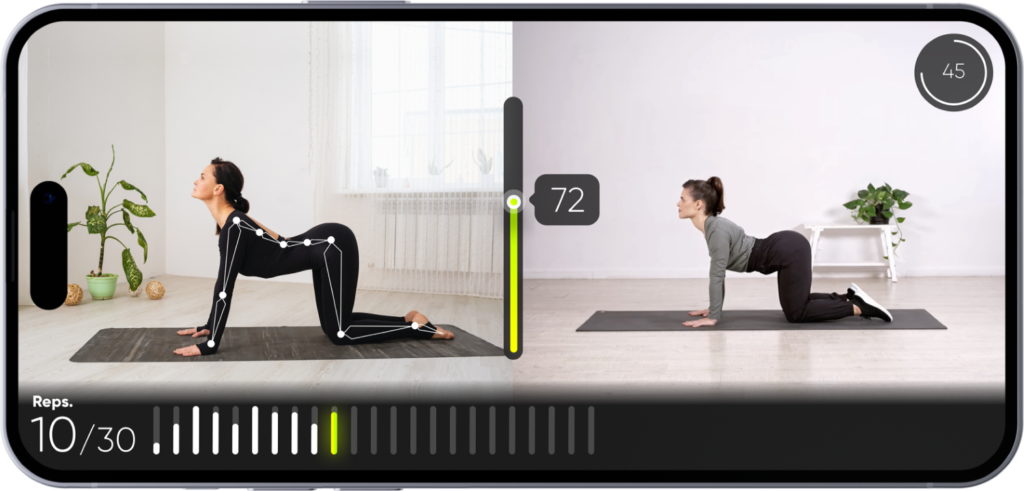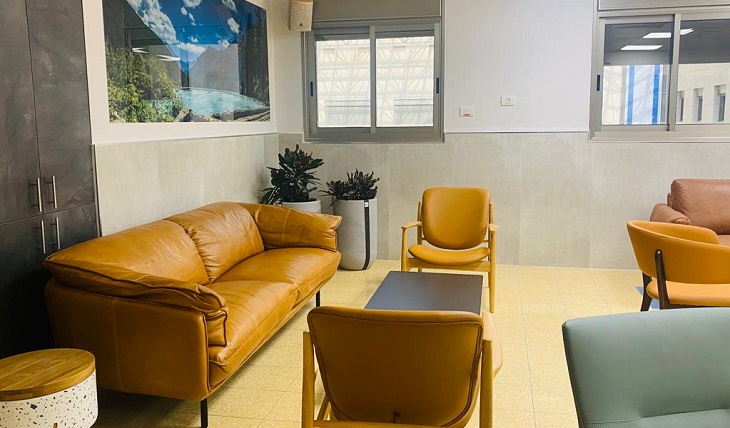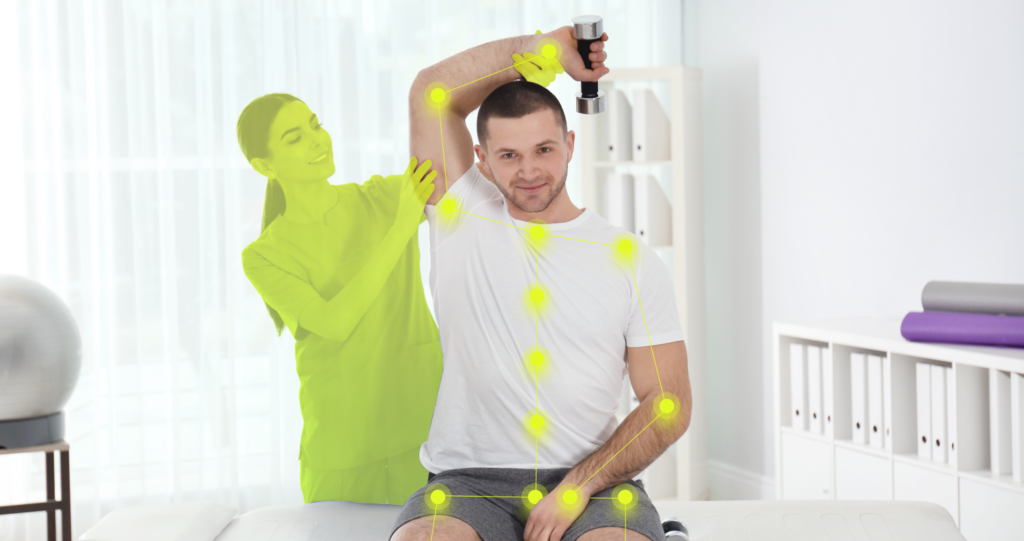With thousands of wounded soldiers needing rehab and physiotherapy due to the ongoing war with Hamas in Gaza, Israel’s medical institutions and organizations are adapting existing advanced technology to help them on the journey back to health.
One of these innovators is Kemtai, an AI-powered virtual physiotherapist whose motion tracking software guides patients as they do their exercises alone.
“One of the most important things in various types of injuries is undergoing as much physical therapy as possible,” Kemtai co-founder and Chief Business Officer Mike Telem tells NoCamels.
But, he says, there are simply not enough trained professionals to go around – leading to patients only spending half or even one third of the time they should be in physical therapy every day.
To compensate for this shortfall, Kemtai created a web-based system that helps guide patients through physical therapy exercises.
“Kemtai uses computer vision and artificial intelligence to provide a similar experience that analyzes your movements and talks to you and tells you what you’re doing right and what you’re doing wrong,” Telem says.
Using just the camera on any smart device, the Kemtai platform can track and analyze the performance while the user carries out their prescribed exercises. It also instructs the user on how best to perform the exercises in real time.
“It’s no sensors, no wearables,” Telem says. “It doesn’t need to be a special camera and it doesn’t need to be a special device. With any phone, any tablet, any computer using the camera, we analyze your body and are able to use that to understand how you are moving.”
The software uses advanced AI and computer vision to recognize a total of 111 points on the body, how they move differently to one another and how each body part should be moving during the exercises.
“Even if your body shape is different or you’re wearing something different or the lighting is different, it still understands this is your shoulder and this is your chin and this is your ear, and the software is able to track that as you move,” Telem says.

When the patient is not performing the exercise correctly, Kemtai will guide the user towards the right movements.
Musculoskeletal (MSK) conditions, Telem explains, are one of the biggest healthcare expenditures in the world, and the number one in the US.
“It’s bigger than diabetes; it’s bigger than cancer,” he says, adding that as the population becomes more sedentary, the issue is just getting worse.
He says there are three main solutions: surgery, which aside from being invasive and requiring recuperation time is not always successful; painkillers, whose use by people suffering from MSK problems greatly contributed to the American opioid addiction rates; and physical therapy, which is not readily available to most people.
But with Kemtai, he says, more people can take advantage of the benefits of physical therapy.
“Physical therapy reduces healthcare costs by 60 percent when it is applied properly,” he says.
It was the back problems experience by Telem and his two co-founders that spurred the three to create the company in 2019, using their respective backgrounds in computer vision and personalization to build the platform. The exercises themselves were devised by trained physical therapists that they brought onboard.
“We’ve all had our share of physical therapy and we saw how computer vision can be leveraged to provide guidance where guidance is needed,” he says.
Sign up for our free weekly newsletter
Subscribe
According to Telem, while there are only a handful of companies working in the field of virtual physical therapy, Kemtai is the “number one platform” from a technological perspective.
“It’s important to understand how important it is to have the better technology, both because of accuracy and coverage of the number of exercises,” he says.
The trio initially bootstrapped the company before receiving grants from the Israel Innovation Authority and a government ministry, and now the platform is in use by several British health trusts as well as more recently by Sheba Medical Center, Israel’s largest hospital.
Sheba, which is also the largest medical facility in the entire Middle East, recently opened a new 36-bed rehabilitation center that is devoted to services for wounded soldiers.
It uses cutting-edge innovations to treat the soldiers, including artificial intelligence, virtual reality and remote monitoring tools, which the hospital says will be added to current in- and out-patient treatments in order to increase the facility’s reach.

Kemtai is in use in both instances, which Temel says enables healthcare providers to expand the reach of their guided exercising, making it more accessible to more people in more locations.
“Let’s say I’m a soldier and I was injured and I spent a month in the hospital, now I go back home, and my home might be an hour’s drive from the hospital. It’s not going to be very easy to get me there on a daily basis,” Temel explains.
“[With] the therapy exercise, I can do it from my phone, from my tablet, from my laptop and the provider has full visibility to what I’ve been doing and how well I’ve been doing it,” he says.
A physical therapist who might see the patient once every week or two weeks, and not every day, can also see what they have been doing on the Kemtai platform and how well they have been doing it via the data that is stored in the cloud.
“You can treat more people at the hospital, give each one of them more exercise time, more therapy time and then when they go home, you can continue and provide that for them,” Telem says.
In addition to the tragic number of fallen soldiers, Telem points out that many more soldiers have been wounded. And, he explains, even the wounded who have not directly sustained an orthopedic injury, will be in need of physiotherapy after being confined to a hospital bed for weeks.
“You must do some rehab to get your body back in working shape,” he says.

And like many others, Kemtai is now updating some of its thousands of different exercises to suit the needs of the wounded soldiers.
“There are several things that may require adaptation, whether it’s missing limbs or passive exercising, which means that the therapist is with you, holding you and moving you,” Telem says.
The platform is only available through a healthcare provider, and Telem is hopeful more Israeli medical institutions will sign up for the service to help the maximum number of people.
“Licenses or money will not be the issue,” he says. “We just want to put it in as many hands of clinicians and therefore patients as possible.”
Related posts

Editors’ & Readers’ Choice: 10 Favorite NoCamels Articles

Forward Facing: What Does The Future Hold For Israeli High-Tech?

Impact Innovation: Israeli Startups That Could Shape Our Future




Facebook comments